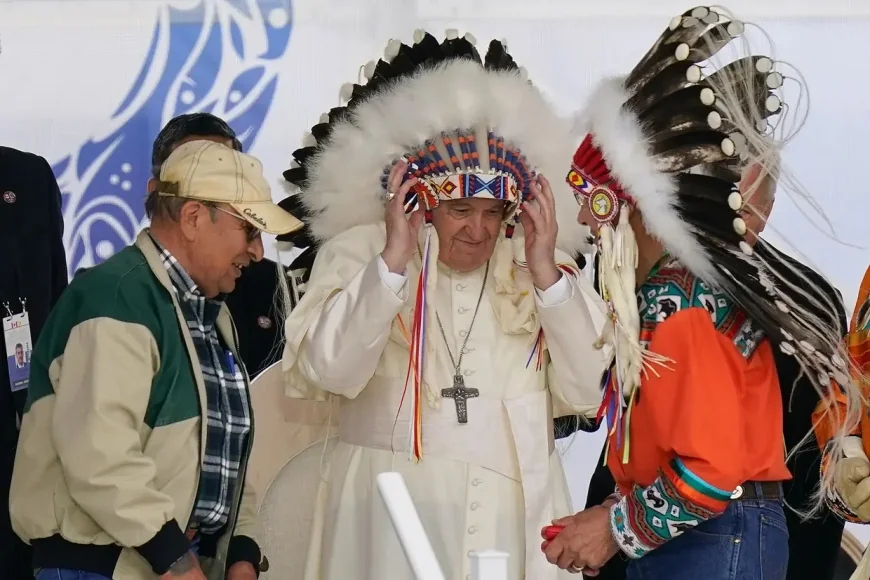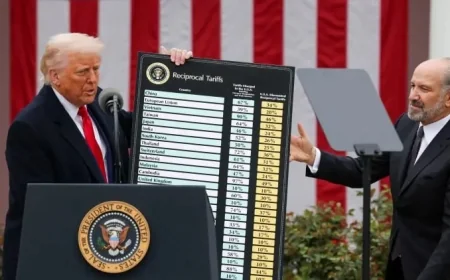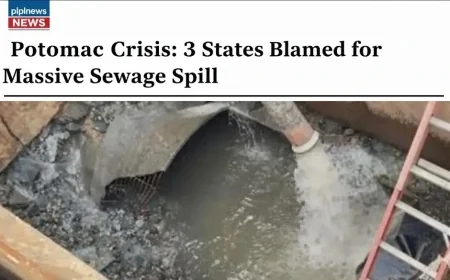Pope returns 62 artifacts to Indigenous Canadians
The Vatican returned 62 artifacts to Indigenous peoples in Canada on Saturday, a move to address the Catholic Church's role in suppressing Indigenous culture in the Americas.

Pope Leo XIV presented the artifacts, along with an iconic Inuit kayak and supporting documents, to a delegation from the Canadian Conference of Catholic Bishops during an audience. According to a joint statement from the Vatican and the Canadian Church, the artifacts were a gift and "a concrete symbol of dialogue, respect, and fraternity."
The objects were part of the Vatican Museum's ethnographic collection, known as the Anima Mundi Museum. This collection has been a subject of controversy for the Vatican amid a broader debate within the museum over the return of cultural objects taken from Indigenous peoples during the colonial period.
Most of the objects in the Vatican collection were sent to Rome by Catholic missionaries in 1925 for an exhibition held in the Vatican gardens. The Vatican maintains that these objects were "gifts" to Pope Pius XI, who wanted to celebrate the Church's global reach, its missionaries, and the lives of the Indigenous peoples they evangelized.
But historians, Indigenous groups, and experts have long questioned whether these objects could truly have been given for free, given the power imbalance prevalent within Catholic missions at the time. During those years, Catholic religious orders were helping implement the Canadian government's policy of forced assimilation to eliminate Indigenous traditions, which the Truth and Reconciliation Commission of Canada has called "cultural genocide."
Part of that policy included the confiscation of objects used in Indigenous spiritual and traditional rituals, such as the 1885 Potlatch Ban, which prohibited holistic First Nations ceremonies. These confiscated objects ended up in museums in Canada, the United States, and Europe, as well as in private collections.
Negotiations for the return of the items intensified
Negotiations for the return of Vatican items intensified in 2022 after Pope Francis met with Indigenous leaders who had come to the Vatican to apologize for the Church's role in operating Canada's devastating residential schools. During his visit, he was shown some of the collection's items, including an Inuit kayak, wampum belts, war clubs, and masks, and requested their return.
Francis later stated that he favors returning objects and other items from the Vatican collection on a case-by-case basis. He said: "Where you can return things, where a sign is necessary, it is better to do so."
The Vatican said on Saturday that the items were returned during the Holy Year, exactly 100 years after they were first displayed in Rome in 1925.
"This is an act of ecclesial sharing, with which the Successor of Peter entrusts to the Church in Canada these artifacts, which bear witness to the history of the encounter between faith and the cultures of the Indigenous peoples," said the joint statement from the Vatican and Canadian church.
It further stated that the Canadian Catholic hierarchy is committed to ensuring that the artifacts are "properly protected, respected, and preserved." Officials had previously stated that Canadian bishops would receive the artifacts with the clear understanding that the ultimate custodians would be the Indigenous communities themselves.
These items are expected to first be taken to the Canadian Museum of History in Gatineau, Quebec. Officials previously stated that experts and Indigenous groups there would try to determine where the items came from, which specific communities they reached, and what should be done with them.
A Process to Resolve Abuse
Canada's ambassador to the Holy See, Joyce Napier, said that repatriation has been a key priority for the Canadian government, and the embassy has been working closely with the Holy See, the Canadian Church, and Indigenous communities for years.
"This is historic, something Indigenous communities have been asking for," she told The Associated Press. "Today's announcement is a significant step towards reconciliation."
As part of its broader reckoning with the Catholic Church's colonial past, the Vatican formally rejected the "doctrine of discovery" in 2023. These principles were supported by 15th-century "Papal Bulls" that legitimized the seizure of Indigenous lands during the colonial period, and are the basis for some property laws today.
The statement marked the Vatican's historic recognition of its involvement in colonial-era abuses committed by European powers, although it did not address Indigenous demands that the Vatican formally revoke the Papal Bulls themselves.
In its statement on Saturday, the Vatican cited the rejection of the doctrine of discovery in 2023, saying that Leo's return of the artifacts concludes the "journey" initiated by Francis.
What's Your Reaction?
 Like
0
Like
0
 Dislike
0
Dislike
0
 Love
0
Love
0
 Funny
0
Funny
0
 Angry
0
Angry
0
 Sad
0
Sad
0
 Wow
0
Wow
0












































